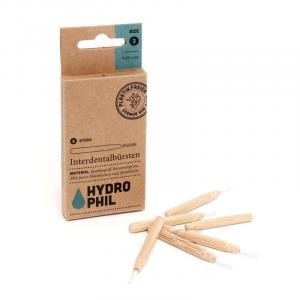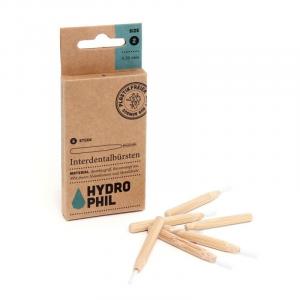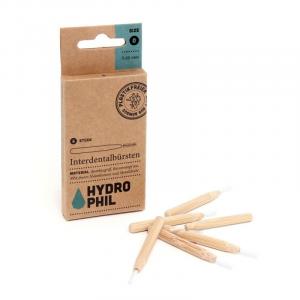
How long does dental hygiene take and what does it include?

What Does Dental Hygiene Involve and How Long Does It Take?
The question "how long does dental hygiene take" is surprisingly common among people—not only those preparing for their first visit but also those who have experienced the procedure before but are still unsure about what exactly happens during it, how often it should be done, and whether it's even necessary if they diligently clean their teeth at home. The reality is that a visit to dental hygiene should be as routine as regular check-ups with the dentist.
Dental hygiene is not just about "removing tartar." It is comprehensive oral care that can affect not only the health of our teeth but also our overall body health. Many people are unaware that gum inflammation and untreated periodontitis can be linked to heart disease, diabetes, or even premature birth. Regular hygiene should therefore be seen as an investment in overall health—and it is undoubtedly worth the attention and time.
What Happens During Dental Hygiene?
The notion that a dental hygienist "just" removes tartar and shines a light on the teeth is long outdated. A typical dental hygiene visit begins with a short conversation where the hygienist inquires about your health status, any issues, and habits related to oral hygiene. This is followed by a professional examination of the gums and teeth—including testing for plaque and inflammation using indicators or a probe.
Then comes the actual removal of tartar, often using ultrasound, followed by cleaning of the interdental spaces with special brushes and floss. Careful polishing of the teeth removes stains caused by coffee, tea, or smoking. In many cases, fluoridation follows, which strengthens the tooth enamel and helps prevent cavities.
If the hygienist encounters a problem, they may recommend changing your cleaning technique, demonstrate the correct use of interdental tools, or suggest additional home care. A good professional also focuses on prevention and education—informing about the impact of diet, smoking, or stress on the oral cavity. And that might be the most valuable part of the entire visit.
Try our natural products
How Long Does Dental Hygiene Take?
The answer to the question "dental hygiene—how long does it take?" is not straightforward. The length of the visit depends on several factors: whether it's a first visit, the current state of the oral cavity, if the patient suffers from periodontitis, has braces, or perhaps sensitive gums.
Generally, the first visit usually lasts 60 to 90 minutes. This is due to the need for a thorough assessment of the oral cavity, detailed removal of deposits, and patient education. For repeat visits, if the oral cavity is in good condition, 45 to 60 minutes is typically sufficient. For children or patients with minimal findings, the procedure may be shorter, around half an hour.
Some patients wonder why "cleaning teeth" takes so long. It's similar to a car service— the mechanic first diagnoses the problem, cleans, replaces worn parts, and advises how to handle the car properly to avoid needing another repair soon.
How Often Should Dental Hygiene Be Performed?
Again, it depends on the individual. Most people need 1–2 visits per year, roughly every 6 to 12 months. If a person is prone to tartar buildup, bleeding gums, wears orthodontic appliances, or has a history of periodontitis, more frequent hygiene, such as every 3 or 4 months, is advisable. For patients with implants, visits are also more frequent to prevent inflammation around the implant (known as peri-implantitis).
Regularity is key. A one-time visit may improve the state of the oral cavity, but without subsequent care and monitoring, problems quickly return. Dental hygiene is not a miraculous procedure that will solve all issues permanently—it is more of a continuous journey towards long-term oral health and gum health.
Why Do Some People Delay Dental Hygiene?
When people ask "how long does dental hygiene take", it's often not just a desire for information. Sometimes, there is a fear of pain, the unpleasant sounds of ultrasound, or the revelation that their teeth are not in ideal condition. Others worry about the cost or feel that since they brush their teeth thoroughly at home, a visit is unnecessary.
Like a dentist visit, dental hygiene is often perceived as something to "postpone." However, the reality is different from the fears—a quality hygienist works sensitively, with patient comfort in mind, and with modern technology. Moreover, the more frequently one attends, the quicker and more comfortably the entire procedure goes. It's like regular exercise—the first visit might be more challenging, but over time it becomes a routine and enjoyable part of self-care.
Life Example
Imagine Mrs. Jana, a forty-year-old accountant, who got to dental hygiene for the first time on the dentist's recommendation. She believed she was brushing her teeth well—twice a day with a brush and toothpaste, occasionally using mouthwash. Yet, she was troubled by bleeding gums and occasional bad breath.
At the first visit, the hygienist explained that tartar under the gum could cause inflammation and that without proper use of interdental brushes, the spaces between her teeth remain full of plaque. The procedure took about 75 minutes, but she left not only with a clean mouth but also with new habits. Three months later, she returned for a check-up—the inflammation had subsided, her gums stopped bleeding, and her breath improved. Most importantly, Jana developed a new ritual for caring for her health, not just her teeth.
What to Take Away?
It turns out that dental hygiene is not just about the beauty of a smile but primarily about health. The question "how long does dental hygiene take" isn't as important when we realize what can be gained during that hour: clean teeth, cavity prevention, protection against periodontitis, and peace of mind that we are doing our best for our health.
In an environment where more and more emphasis is placed on prevention and sustainability—whether it's food, fashion, or body care—oral care should be an integral part. Investment in dental hygiene pays off in the form of healthier teeth, less need for treatment, and an overall better feeling about oneself.
So how long does dental hygiene really take? On average, one hour. But its benefits can last for months—or even a lifetime.




